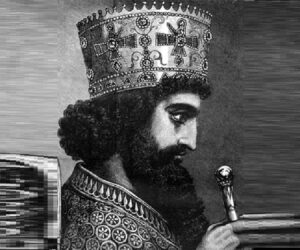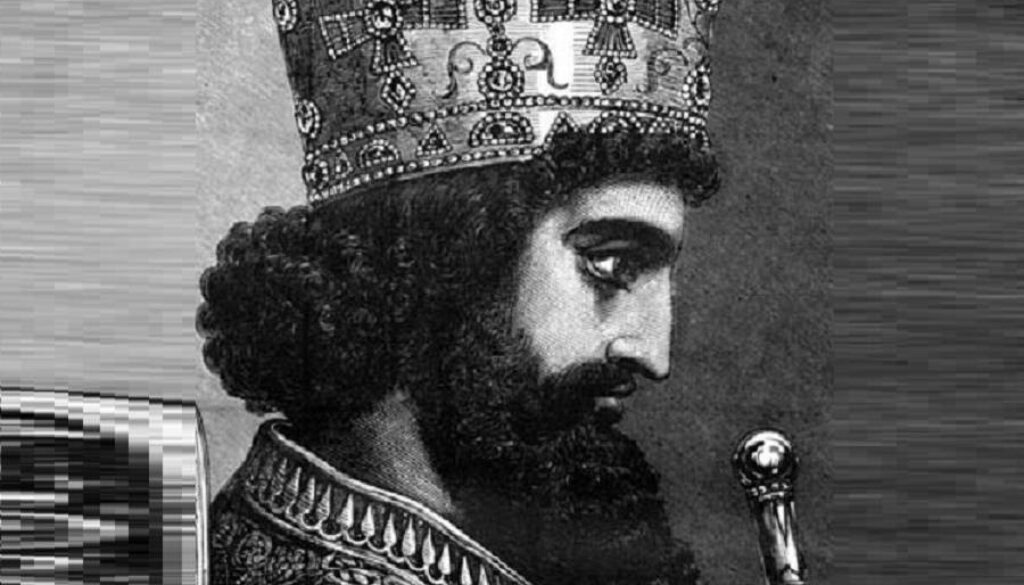Ester 1:1-9 King’s Banquet

We meet King Ahasuerus, Xerxes I, as he gives a banquet in the capitol city of Persia. He is king of Persia and is showing off his wealth.
King Ahasuerus, Xerxes I, comes between the times of Zerubbabel and Ezra. Between the Temple being rebuilt and the wall of Jerusalem being restored. He reigned only 20 years from 485 – 465 BC. But he is one of the most popular of the Persian kings in literature. (I am of course getting this from Google.)
Our setting for the book of Ester opens with King Ahasuerus showing off his wealth and power for those under him. For six months he has taken the nobles and governors of the provinces on a tour of all he controlled.
When reading this it reminded me of King Hezekiah and how he took the messengers from Merodach-Baladan son of Baladan king of Babylon and showed them everything he had. “There was nothing in his palace or in all his kingdom that Hezekiah did not show them” (2 Kings 20:13b). I doubt it took as long as it took King Ahasuerus to show his kingdom but it was as thorough. Isaiah confronted Hezekiah on his actions and told him that he had pretty much showed his hand to the enemy. Hezekiah wasn’t concerned because Isaiah stated that the repercussions of this would come after his lifetime.
King Ahasuerus isn’t worried about repercussions. He is comfortable in his place and doesn’t fear. After showing off all his wealth and power the king holds a seven day banquet for all his guests. This is a BIG occasion and the king and included EVERYONE in the city of Susa. Men both great and small were invited to this feast. The queen would also hold a similar feast for all the women.
I wonder if there were beggars in the city and if they were included. Maybe the military moved any who were in the capitol city out beforehand. Their likely shabby appearance doesn’t seem to fit well with the description of the banquet setting we see. “There were white cotton curtains and violet hangings fastened with cords of fine linen and purple to silver rods and marble pillars, and also couches of gold and silver on a mosaic pavement of porphyry, marble, mother-of-pearl, and precious stones. Drinks were served in golden vessels, vessels of different kinds, and the royal wine was lavished according to the bounty of the king” (verses 6-7).
No one was forced to drink or even partake in the meal “For the king had given orders to all the staff of his palace to do as each man desired” (verse 8b). It looks to me like the servants were told not to force anything on anyone who attended but did it give the people who attended free reign when it came to appearing at the feast and in their behaviors during the feast?
There is another feast that comes to mind when looking at this one. It is the wedding feast where the original invited guests refused to come. When the invited guests ignored the king’s command he sent his servants out into the highways and byways to bring in anyone they found. Those who came in were given wedding garments and cleaned up before being let into the banquet hall. One man skipped that step and appeared as he was from the streets. He was thrown out by the king. Did Ahasuerus guests have to be cleaned up first? Was there a dress requirement for Ahasuerus’ feast?
The two feasts had different intentions so there were most likely different rules to them. The feast we see in our reading was to show off the king’s generosity. Those he had taken on a tour of his country were present as he performed in front of them. The marriage supper was laid out to honor the son and his bride. It was there special day and the guests were there to honor them, not the other way around. The guests received the honor of the invitation but were there to give honor to the wedding couple only.
Back in our story, the guests are enjoying themselves immensely and reveling in the generosity of the king. No one lacks for anything at the banquet. All is good; for now.
It seems like there is always a “for now” in everything. That “for now” only lasts until “then.” As a host of many events that “then” is always dreaded. Even in the wedding feast there was a “then” that changed everything, for one guest at least. In our story the “then” is necessary for the rest of the story. It is something small in the vastness of the universe but is crucial in the plans of God. When we get to the end of Ester’s story, if I can remember, I want to pose the question floating around in my mind right now. I don’t want to pose it now because it is for another time in our story. (I wrote it down to help me remember.)
When my mind is finally clear from all this illness I will probably go back and write a ‘first person’ story for Ester. For now, I’m sticking to looking at the highlights and am grateful to the Lord for giving me clear enough thoughts to enjoy His word.
Thank You Father for meeting me where I am. Thank You for not requiring me to be perfect and ‘in top form’ before spending time with You. Thank You for showing me things in Your word. For sharing Your stories with me. For placing questions in my mind so I will look deeper. And for bringing it to life in my imagination, even if it is only fragments right now. I look forward to You filling it in later on. Don’t let me forget or get too busy Father.



